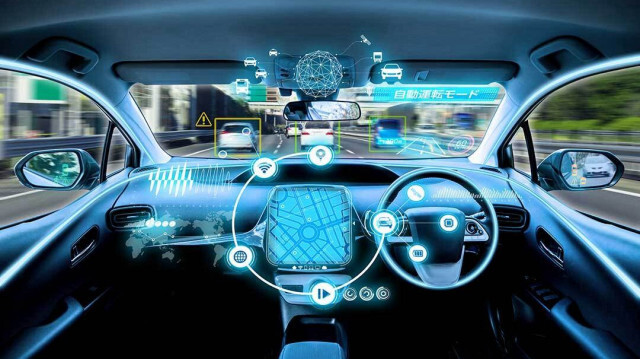
From combustion engine cars to fully electric vehicles, to flying cars - technological advancements keep changing automobiles
Rapidly evolving technology has brought changes and innovations to all aspects of human life, especially to the way we travel by since the early 2000s, as we moved from combustion engine cars to computer-embedded and electric-powered vehicles.
The transition from what we call today “feature phones” to smartphones in the blink of an eye – a radical change in how we communicate and use our daily driver device to complete tasks – is similar to the transition of travel and cars, which have turned into computers running on four wheels.
Car designs, in turn, had to accommodate the evolution, as cars now have sharper lines and contours all around their chassis, featuring more aerodynamic looks compared to designs from previous years.
The industry shifted from “car phones” to Bluetooth connectivity and navigation systems in head units, which have become staple, while the advents of driver recognition and emergency systems remain the most sought-after features.
Additionally, car safety has rapidly transformed with technological advancements, an example for which is the advanced driver-assistance system (ADAS), which helps drivers to detect blind spots, collisions, and lane warnings, among others, as well as facilitating speed control, reversal, and more.
Biometric recognition, such as via fingerprints, is not limited to identifying the driver any longer, as cars can now play music depending on driver moods detected through cameras.
Meanwhile, autonomous driving, once a science-fiction pipedream, has come true, including automatic parking, as self-driving cars transition from being technical showcase prototypes to becoming mainstream thanks to the advancements in artificial intelligence (AI).
- Transition from fossil fuel to electric
The transition from fossil fuel-powered internal combustion engine cars to electric vehicles (EV) is a substantial move towards an environmentally friendly and sustainable future.
The first projects on electric vehicles date back to the 1800s, while the developmental efforts accelerated in the 1900s, with the production of the General Motors EV1 in 1996 and the Toyota RAV4 EV in 1997.
US-based EV-maker Tesla played a key role in the modern use and development of EVs, bringing a large number of customers together.
The first highway legal EV to use lithium-ion battery cells, the Tesla Roadster, was announced in 2008 with an advertised 393 kilometers of range.
Years later, Tesla released the first generation Model S in 2012, and the Model Y in 2023, which went on to sell 1.2 million units, becoming the world's best-selling car last year, as the EV-maker's market cap reaches $657 billion.
BYD is another competitor in the EV sector, as the Chinese carmaker ranks third among the world's auto brands, just after Tesla and Toyota, with $91 billion in market cap.
The impact of the transition from combustion engine cars to electric-powered vehicles is evident from the fact that two of the top three automakers worldwide produce EVs with a marginally high market cap, leaving behind all the other players in the automotive sector.
- Flying cars on way
Beyond electric vehicles lies the future and potential transition to flying cars, as work is underway to produce them all around the world.
The electric vertical take-off and landing aircraft (eVTOLs) Pal-V Liberty in the Netherlands, the Airspeeder and the Volar in the UK, and HEXA and Midnight in the US are examples of flying cars of today.
Meanwhile, the aviation giants Airbus and Boeing are working to participate in the flying car industry, as the latter's Wisk will provide autonomous flying taxi service in Asia in the next decade, while the former's CityAirbus flying car's test processes are expected to begin sometime soon.
Türkiye is also developing its own flying cars, the first example of which is the Baykar Cezeri, which was unveiled at the aerospace and technology festival Teknofest in Istanbul.
The Baykar Cezeri is designed to transport passenger and cargo, though its development is still underway.
Additionally, the development of the homegrown “AirCar” continues, as the vehicle is planned to make its first official flight next year.




















